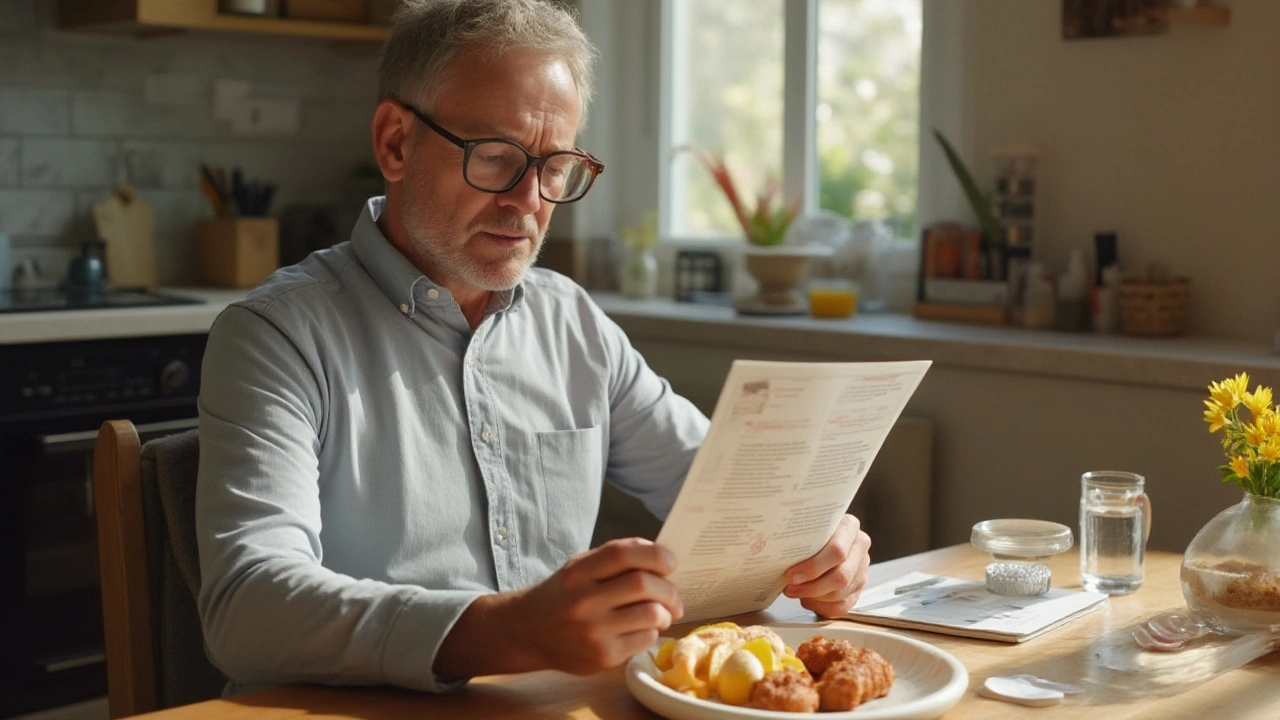Dosing: Practical tips for taking medications safely
Ever taken a pill and wondered if you did it right? Dosing mistakes are common but avoidable. This page gives clear, simple rules you can use right away — how to read directions, measure liquids, handle missed doses, and when to ask a clinician for a change.
Start by reading exactly what your prescription or over-the-counter label says. "Take one tablet twice daily" means two separate times, not two tablets at once. Watch the units: mg vs mcg matter — 500 mcg is not the same as 500 mg. If the label uses abbreviations you don’t get (BID, TID, QHS), ask your pharmacist. Don’t guess.
Measure and store correctly
For liquids, always use the dosing tool that comes with the medicine — oral syringe, dropper, or dosing cup. Kitchen teaspoons vary a lot and lead to wrong doses. For tablets, use a pill cutter if you need half a tablet; don’t break by hand unless the tablet is scored. Keep meds in their original bottles so you don’t mix up strengths.
Store medicines as directed. Some need refrigeration, others must stay dry and cool. Heat or moisture can change potency, which changes the effective dose you get. Throw out expired meds — they may not work the same.
Adjusting doses and special situations
Some people need different doses: kids (weight-based dosing), older adults, and people with kidney or liver problems. If a drug’s dose is based on body weight, the label or prescriber should say mg/kg. Don’t try to calculate pediatric doses yourself without checking. If you have kidney or liver disease, tell your prescriber — they may lower the dose or increase time between doses.
Food and other drugs change how medicines work. Some drugs need an empty stomach, others work better with food. Grapefruit and some supplements can raise levels of many meds. Keep an up-to-date list of everything you take — prescriptions, OTCs, vitamins — and share it with every prescriber.
Missed a dose? The right action depends on the medicine. For many drugs, take it as soon as you remember unless it’s almost time for the next dose; then skip the missed one. For time-sensitive meds (like some blood pressure drugs or antibiotics), check the leaflet or call your pharmacist. If you accidentally take too much, contact emergency services or a poison control center right away.
Practical tricks that help: set alarms for doses, use a pill organizer, keep a medicine log, and ask your pharmacist to review your regimen. For online purchases, only use trusted pharmacies and make sure the product matches the prescribed strength — wrong strength equals wrong dose.
Want specifics for a drug you take? Check the articles linked on this tag page for dosing details on common meds like Glucophage, Diazepam, Bactrim, and more. If anything feels unclear, a quick call to your pharmacist will save you a lot of trouble.
Zocor FAQ: Answers on Simvastatin Dosing, Drug Interactions, and Monitoring
Get straight answers on Zocor dosing, drug interactions, and what to watch for while taking simvastatin. Get the facts—no jargon, just what matters.





